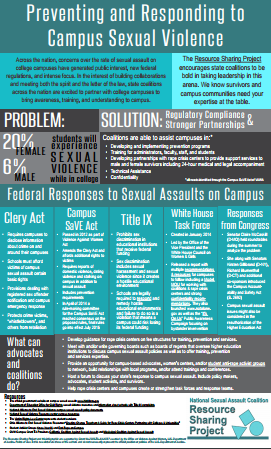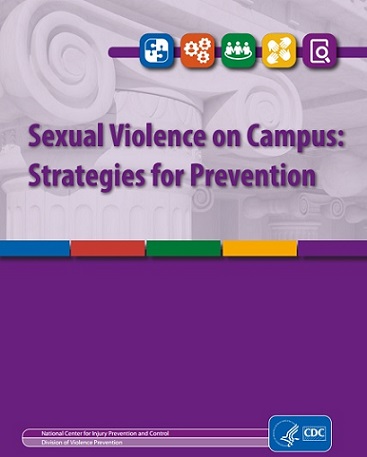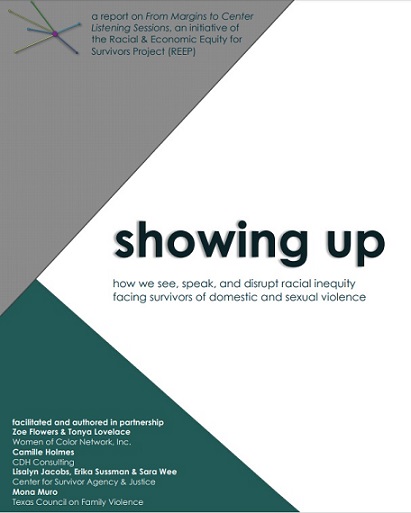Resources Library: Prevention
Start a Search:
RSP Preventing and Responding to Campus SA Infographic

In this ReShape, the Resource Sharing Project created an infographic for coalitions about federal rules and regulations around campus sexual assault.
Rural and Tribal Elder Justice Resource Guide: Summit Event Briefing
Summit Event Briefing
November 14-15, 2018
Marriott Downtown 700 Grand Ave.
Des Moines, Iowa
On June 15, 2018, the United States Department of Justice and Department of Agriculture committed to working together to promote elder justice in rural and tribal communities. Elder justice refers to a society’s response to elder abuse, which includes physical abuse, caregiver neglect, financial exploitation, psychological abuse, sexual abuse, and abandonment. Each year in America, at least 10% of older adults (age 60 or older) experience one or more forms of elder abuse. This is unacceptable.
The goal of the Summit and subsequent activities is to enhance the ability of elder justice professionals to more robustly respond to the unique needs of older adults residing in rural and tribal communities by sharing best practices and proposing innovative strategies to fill the identified gaps in service needs, all with the goal of enhancing the lives of older Americans everywhere.
Sexual Violence on Campus: Strategies for Prevention

The Centers of Disease Control and Prevention recently released Sexual Violence on Campus: Strategies for Prevention. This tool offers an overview of how to approach sexual violence prevention on college campuses with real-world examples from the field.
Click here to access the document.
Showing Up: How We See, Speak, and Disrupt Racial Inequity Facing Survivors

(as originally posted by the Center for Survivor Agency & Justice)
In September 2017, REEP facilitated seven From Margins to Center Listening Sessions to facilitate dialogue across the field on racial and economic equity for survivors. This report dialogues-back with the community that contributed to the From Margins to Center Listening Sessions. It shares themes and issues from Listening Session conversations via text, graphics and illustrations in order to aid in self-reflection, challenge dominant narratives, support improved data collection and analysis, and to begin, continue, or advance conversations and work toward racial equity for domestic and sexual violence survivors and for all of us.
State Policy Playbook for Ending Campus Sexual Assault
Know Your IX's State Policy Playbook outlines key reforms that students, advocates, and state policymakers can pursue to support survivors on campus, keep students safe, and end gender-based violence in school. Although Title IX and the Clery Act require schools to take action to address gender-based violence, these federal laws set only a floor for schools' responsibilities to create safe and equitable learning environments. States can and should do more to keep schools from sweeping sexual violence under the rug.
For additional resources, you can visit the Know your IX website here.

